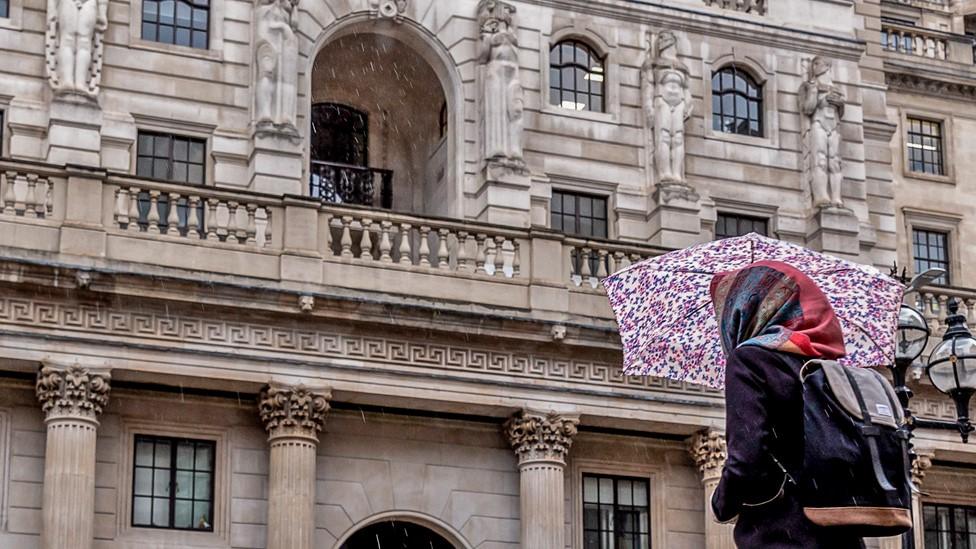Emergency Bank move will not solve the problem
- Published
- comments

This is an immense show of force from the Bank of England trying to calm borrowing markets. It is already having an impact. It also raises some questions.
First and foremost it underlines that this is a crisis, with the Bank responding in emergency mode. The clear cause was the chancellor's mini-budget, leading to a loss of market confidence, and spiralling borrowing rates on government debt.
That crash in the value of loans to the government threatened to become a "material risk to financial stability", says the Bank.
That risk was apparent most immediately among pension funds. That's what prompted the Bank of England's dramatic intervention.
Pension funds hold a lot of government bonds, known as gilts, because they are normally such a stable investment. As their value plummeted concerns grew for pension funds' solvency, raising the question whether they'd have to sell off other assets, such as stock market shares.
So the Bank will now, for a temporary period, buy up government bonds in unlimited quantities.
The effective interest rates being charged to the UK government in these markets, which was spiralling to 20-year highs, has now fallen back.
But it was not a decision made by the Bank's Monetary Policy Committee, who were informed of the decision after it was made by the Bank's financial experts.
It comes at exactly the same time as that committee had been committed to do the exact reverse policy - selling government debt. That process was due to start next week and has now been delayed.
It is a massive intervention, and while it will not solve the government's problems, it might buy them some time.
But it could confuse markets about the clarity of policy making and lines of accountability. Sterling has fallen sharply again, close to all-time lows.
The intervention was driven specifically by the need to stave off chaos in the corner of the financial services industry that underpins pension funds.
This explains why the Monetary Policy Committee, that normally authorises bond-buying, did not make this decision. Insiders are adamant that this decision does not signal anything about where interest rates might go, and is not a form of loosening monetary policy or "printing money", creating it out of thin air to help a troubled government with its funding.
But all of this is only required because of the violent turn against British government debts since the mini-budget. It is a dramatic emergency medicine. The risk still lingers. It does not solve the underlying problem.
- Published12 October 2022

- Published28 September 2022

- Published28 September 2022